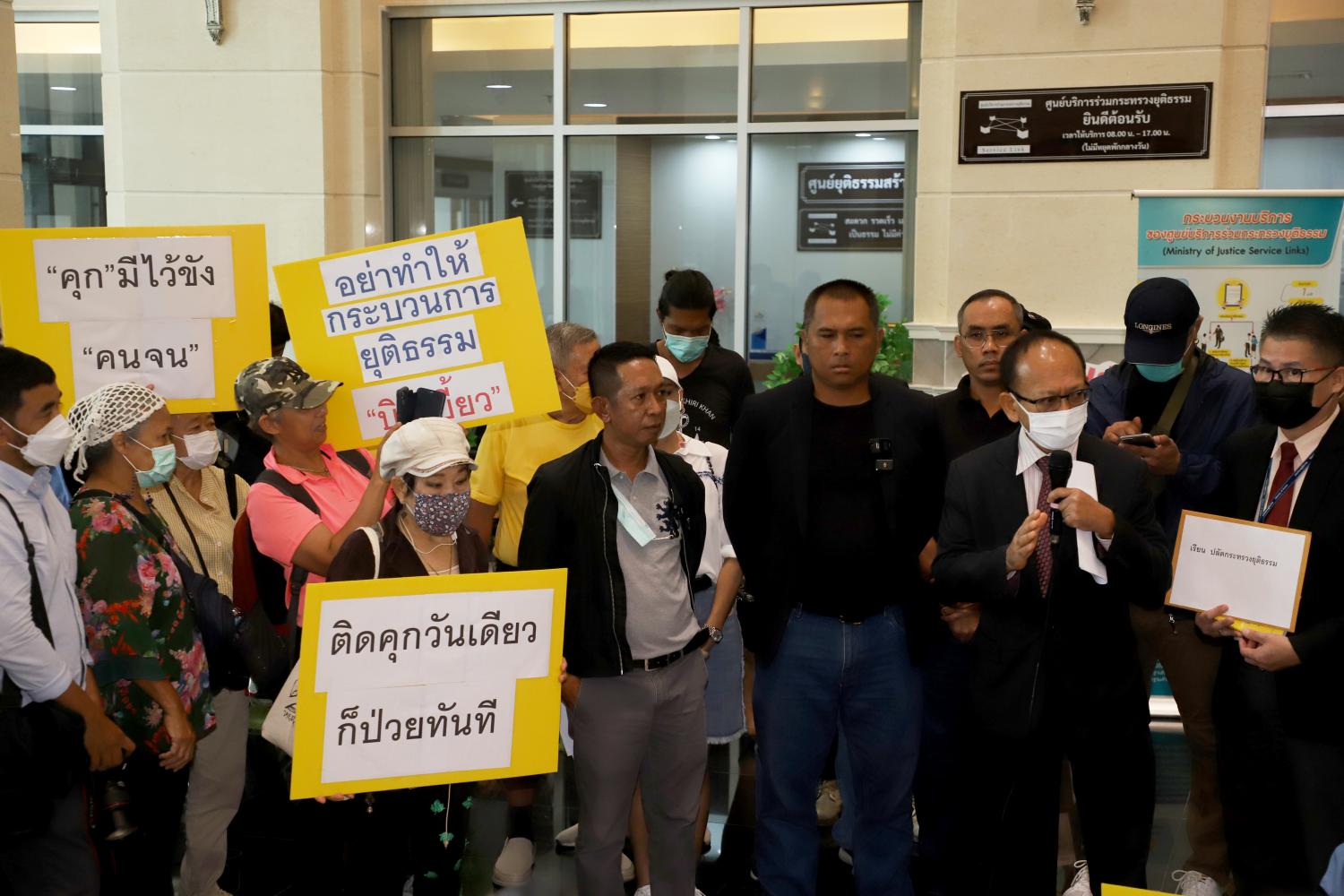
A park official who was among the last people to see the late Porlajee "Billy" Rakchongcharoen before he disappeared five years ago questioned the result of the mitochondrial DNA test that led authorities to conclude the Karen rights activist was murdered.
Chaiwat Limlikit-aksorn, former chief of Kaeng Krachan National Park, insisted before the media on Wednesday he had nothing to do with Porlajee's disappearance and death.
He said he doubts the result of the test, which compared the mitochondrial DNA from a skull fragment retrieved near a rope bridge in the park to DNA from Porlajee's mother. The test was carried out by forensic scientists at the Central Institute of Forensic Science.
"I think this [the DNA test result] is not enough proof to conclusively say the skull fragment is Billy's," he said, before adding the skull fragment was found in the same area where local Karen tribes scatter the ashes of the deceased as a part of their funeral rites and that the skull may not belong to Billy at all. "This should not have been ignored when the bones were brought in for mitochondrial DNA testing," he said.
Mr Chaiwat -- who is now the chief of Ubon Ratchathani-based Protected Area Regional Office 9 -- is known to have locked horns with Porlajee numerous times because the former park chief had ordered the eviction of Karen villagers from their traditional villages within the park's boundaries.
Local activists said park officials torched the villagers' bamboo huts and rice barns in an effort to drive them out of the park.
When Porlajee went missing on April 17, 2014, he was in the middle of preparing to sue Mr Chaiwat and other park officials for the evictions. Immediately before his disappearance, Porlajee was arrested by park authorities.
Mr Chaiwat and several park officials faced murder charges in connection with Porlajee's disappearance, but the Supreme Court acquitted them due to lack of evidence.
The former park chief said Porlajee was arrested for illegally collecting wild honey, but claimed the activist was released after being given a warning.
Pol Col Traiwit Namthongthai, former chief of Provincial Police Region 7 who led the investigation, said some suspects who had earlier confirmed Porlajee was released retracted their statements during questioning.
"They told police that they did not see Mr Porlajee being released," Pol Col Traiwit said, referring to the accounts of Kasem Luerit, then chief of Forest Protection 6 in the national park, and two intern students.
In response to questions regarding the credibility of its investigation methods, DSI chief Pol Col Paisit Wongmuang told the media on Wednesday that the process comprised more than comparing the DNA from the skull fragment with Porlajee's mother.
"We carefully ran a check on Porlajee's family and found all of his mother's siblings are still alive," said Pol Col Paisit, before saying the DSI will need three more months to indict suspects.
His deputy, Pol Lt Col Korrawat Panprapakorn, said on Wednesday that investigators have clues of the suspects' identities, but declined to elaborate.
In Phetchaburi province, Pinnapa Pruksapan, Porlajee's wife, told the media on Wednesday that the death of her husband was connected to his campaign against the eviction of ethnic Karen people from Kaeng Krachan National Park.
"He told me that some organisations were not pleased with him. If he disappeared, he told me not to worry or try to find him because he would be dead.
"When he really disappeared, I thought of his words. He had asked me not to look for him, but I could not keep my promise because it is a human who vanished," she said asking the authorities to immediately arrest the wrongdoers.
Ms Pinnapa asked the House of Representatives to pass a bill on the prevention and suppression of torture and forced disappearances.
The Justice Ministry drafted the bill back in 2016 and tabled it for deliberation by the National Legislative Assembly earlier this year.
The bill is currently being reviewed.



